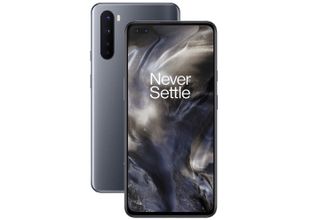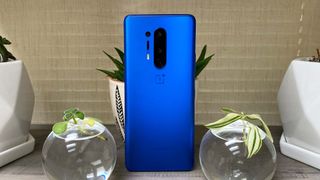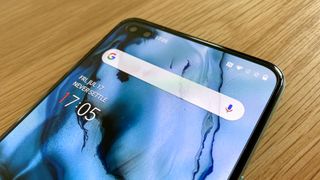OnePlus Nord is redefining the smart phone in 2020 — here’s how
While the OnePlus Nord is shaping up to be a killer budget phone, with its impressive specs, design and camera array for a sub-$500 price. It also represents a major pivot for the Chinese phone maker. The Nord brand is at once a return to OnePlus’ roots but also a new chapter for the company.
OnePlus’ story thus far is one of rather impressive success. Founded back in December 2013 by Pete Lau and Carl Pei, the Shenzhen-based company is a mere six-and-a-half years old. But it now sees revenues of $1.4 billion and has grown from an obscure phone company into a brand that has a zealous following.
That’s not surprising, given OnePlus has spent years building up its community. The OnePlus One was the company’s first affordable phone with flagship-challenging specs. And with the Cyanogen OS it offered tech fans a powerful alternative to the Samsung, HTC and Sony handsets at the time. Available through invitation only, the first OnePlus phones laid the foundations for a company that claims to “Never Settle”.
This invitation-only means of selling the OnePlus phones allowed the company to regulate the flow of devices in the face of high demand. But a move to its Oxygen OS — a slick and lightweight skin of Android — and the removal of the invitation-to-buy scheme saw OnePlus expand its reach.
In 2017, the OnePlus 5 became the company’s fastest-selling smartphone, showing that it was no longer an Android upstart but a true mainstream phone brand. Subsequently, the OnePlus 6 and 6T cemented OnePlus’ position as a brand that made well-priced phones with flagship specs, falling sort of but a few high-end phone features and offering very good but not great smartphone photography.

However, with the OnePlus 7 and OnePlus 7 Pro, the company decided to fork its phone lineup, with one flagship-killer and effectively a full high-end phone. It arguably fell a little short with the latter Pro phone as well as the Pro ‘T’ versions. But with the OnePlus 8 Pro, OnePlus came out with a true flagship phone, and one with a flagship price to boot.
This was a triumph for OnePlus. But with both the OnePlus 8 and 8 Pro starting at $699 and $899 respectively, OnePlus no longer had keenly-priced phones sitting at or under the $500 mark.
Tuomas Lampen, OnePlus’ head of European Strategy at OnePlus, told Tom’s Guide that as its community of users demanded “more and more” out of its devices, the prices of OnePlus’ phones have gone up.
This marked somewhat of a departure from its roots and left a gap in the market of its own making; there was no longer an OnePlus handset to properly offer a flagship-killing smartphone experience for a wallet-friendly price. But OnePlus realized this and that was how the Nord brand came about.
Heading up Nord
“Now we’ve seen a growing interest and demand from our community that we should be making affordable devices as well,” Lampen explained.
He noted that there’s been a demand for mid-range phones for years. But OnePlus needed to choose the right moment to push back into that arena while not eroding its reputation for delivering smooth and fast performance.
“We have this great user experience we are able to offer in the flagship devices; how can we bring that premium feel to [the budget segment]? Lampen posited, and then in answer to his own question he responded that OnePlus went back to its community to establish what are the core expectations they have from a OnePlus phone.
The feedback yielded a desire for a good-quality device that delivers smooth performance and has strong cameras. But that’s quite a challenge for an affordable phone. After all, the current budget champions such as the iPhone SE 2020 and Pixel 3a deliver excellent phone photography results but only come with a single camera, while those that have more tend to deliver less -than-stellar results.
But the advent of Qualcomm’s latest Snapdragon 7-series chipsets offered a solution to this challenge. Sitting in between the flagship 8-series and the more budget-oriented Snapdragon 6-series, the Snapdragon 765G in the OnePlus Nord offers solid performance and support for multiple cameras, 4K HDR video, and smart battery-saving features, all without requiring smartphone makers to cough up premium prices of an 8-series part.

“With our close partners at Qualcomm, they’ve been able to deliver a chipset that’s more affordable to us but obviously offers the most important bits of the flagship category,” said Lampen.
Lower-end Snapdragon 7-series chips have been around since 2018, but Snapdragon 765G was only available to phone makers earlier this year. That was fortuitous as it gave OnePlus a chip with an affordable octa-core processor and a 5G modem for its budget handset. This meant it could weave a line between delivering an affordable phone yet one with enough performance for pretty much every Android task and offer 5G connectivity.
The overall specs of the OnePlus Nord was decided by what makes a core OnePlus experience, Lampen explained. OnePlus took the most significant parameters of its flagship phones, such as performance, cameras and an expansive display then worked them into an affordable handset.
That’s why you’ll not only find a powerful chip but also 12GB of RAM, up to 256GB of storage space, 30W fast charging, and a 4,115 MAH battery in the Nord. And its 6.44-inch AMOLED display with a 90Hz refresh rate is pretty much on par with the display of the OnePlus 8; while it’s not a ‘pro-level’ 120Hz panel, it’s fast enough for most people and an impressive feature for a phone that sits below $500.
No OnePlus 8T Pro?
The OnePlus Nord looks much like a spiritual successor to the flagship-killer OnePlus phones of yore. Yet that had us wondering if OnePlus was effectively cannibalizing its premium phones, rendering the likes of the OnePlus 8 Pro moot to all but the most fevered chasers of high-end phone specs.
But Lampen said there’s still very much an appetite for premium flagship OnePlus phones.
“I completely understand the description that we’re going back somewhere we’ve been. But the difference is back then those were still flagship category devices, it’s just the industry and demand from consumers has changed,” Lampen said. He noted that while a high-end phone could once be had for $500, today’s flagship handsets – think the iPhone 11 Pro or Galaxy S20 Plus, now push towards or beyond the $1,000 mark.

As such, what was once a flagship price range is now a place where mid-range phones sit. OnePlus isn’t exactly returning to its roots with the Nord, but is entering a new market, only one that bears a similarity to where it has been before.
And Lampen noted this means OnePlus isn’t going to stop making high-end phones either: “I feel that we still have a huge demand for the flagship category; people are expecting us to make as great devices as we can.”
“But then we have this huge mass market audience who I think they will be excited to get to experience the OnePlus user experience with our Oxygen OS and getting that in a much more affordable price point. And yes, in the price point where we used to be a few years ago,” Lampen added.
“But we definitely have the kind of separation of the flagship category devices and the target group who wants to buy those, and then this more affordable line with a new target group.”
Lampen stopped short of confirming that a OnePlus 8T Pro was in the works, but it would appear that it’s certainly on the cards. And while OnePlus is indeed returning to its roots with the Nord it’s doing it through a new brand and is certainly not going to give up making true flagship Android handsets to stand shoulder to shoulder with Samsung, Apple and Google’s very best phones.
What’s next for Nord?
With the OnePlus Nord looking set to be a hero of the affordable phone category, it’s easy to forget that Nord is actually a family of products. What that family will be made up of has yet to be seen, but OnePlus intends to build it out.
“It’s a little bit too early to discuss,” Lampen said when we pressed him on the issue. “Now the first step in the smartphones [range] is to go to this mid-range [market] with OnePlus Nord and the first device also called the same. So definitely we can expect more devices coming out going forward.”

But Lampen noted OnePlus needs to “follow the market” and gauge how well its first Nord device is received before pursuing other gadgets and potentially other markets; we discussed with Lampen at the potential for the OnePlus Nord to make it out of India and Europe and over to the U.S. He did say that OnePlus is following other product groups as well, such as TV and headphones, which could suggest that the Nord brand will be built out beyond smartphones.
“Our overall target as a tech company is we’re looking at different technologies […] and we just need to see where we can bring something new to the table or where we can bring the user experience to another level,” Lampen said.
In short, we can pretty much expect more OnePlus Nord phones in the future and likely in more markets. But there’s a good chance Nord could become a family of tech products that transform OnePlus for being primarily a phone maker upstart born out of Shenzhen’s melting pot of innovation and tech industry, into a consumer tech powerhouse that could snap at the heels of Apple while also drastically undercutting it.
Nord might mean North in a range of European languages, but OnePlus seems to be ready to travel in any direction as it opens a new chapter in its tech history.

